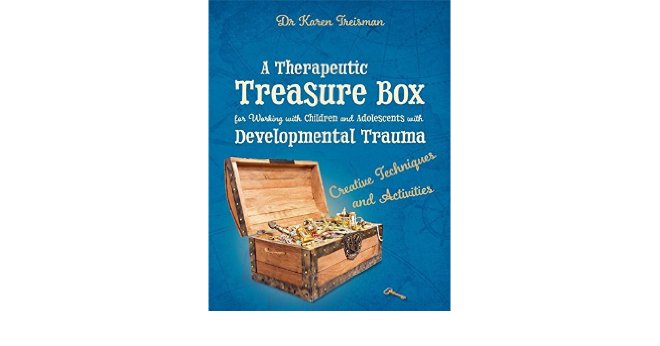Why are over 25% of adoptive families reporting that they are in crisis?
Why are over 25% of adoptive families reporting that they are in crisis? https://thejaneevans.com/wp-content/themes/corpus/images/empty/thumbnail.jpg 150 150 Jane Evans https://secure.gravatar.com/avatar/1b06bd036211b82cdba19b095bacdad4?s=96&d=mm&r=g Adoptive parents may well be screaming at the screen if they’ve just read the title of this blog
Adoptive parents may well be screaming at the screen if they’ve just read the title of this blog
For those who live with their adopted children, it may well be ridiculously obvious! For example, if you go into adoption with expectations of creating a loving family environment for and with a child, only to discover this ACTUALLY happens fleetingly during the ‘honeymoon period. That over time it either disappears dramatically or becomes a frantic tango of good bits, challenging bits and downright horrendous bits. This could be part of the descent into crisis.
Almost 3,000 subscribers to Adoption UK’s newsletter responded to the survey by BBC Radio 4’s File on 4 programme.
More than a quarter of families, when asked to describe their adoption, said they were facing serious challenges that had an impact on the wider family, were at risk of breakdown or disruption, or had already been disrupted.
The adoption process, family formation, and day to day parenting and care of a child with a history of any kind, let alone one steeped in traumatic experiences, can be ridiculously complex. I’m told that one of the hardest things to live with can be the lack of a sense of ‘progression,’ despite a parent repeatedly doing everything they possibly can for their child’s wellbeing. I haven’t got any ‘lived experience’ of being an adopter. I try hard to imagine it based on what others have shared with me, and what I know about the impact of early trauma, vicarious trauma, secondary trauma, compassion fatigue and blocked care.
To the outside world, it may be less obvious as to why so many adoptive families in the survey shared,
More than half of those surveyed reported living with a child who was violent, including being punched, kicked or threatened with knives.
More serious incidents included hospital visits and sexual assault.
A ‘Walt Disney’ happily ever after perspective
Unfortunately, it is common amongst the general public to believe that the poor little child just needs and deserves a family home. How lucky, and happy they should be when they finally get their ‘happy ever after’ with their forever family.
Likewise, the belief that when adoptive parents get their longed-for child or children, they should ONLY feel grateful, delighted and ‘complete’. Of course, there are some glitches, but ‘all children go through phases.’ ‘They will be fine once you have some firm boundaries in place’ and ‘they know they are loved.’ ‘Have you tried….’, ‘it’s just like when our Tom was 3 he did the same’.
All of this well-intentioned, lacking any insight into the realities, commentary can mean adoptive parents feel even more ‘different’ and misunderstood. They may well learn to avoid family and friends so the very support systems they dreamt of and need become an additional source of stress.
What can contribute to crisis
The short answer – living with unremitting trauma. There are additional factors that can also contribute to families experiencing periods of ‘crisis which sometimes lead to family break-down. I write this from the perspective of a professional who has been fortunate to work with a number of adoptive families, nearing crisis point or in it. I do not have direct lived experience.
In the end, Keith made the decision to send their daughter back to care. The couple say it was the most difficult decision of their lives.
“She’s in such turmoil, but her behaviour is not her fault,” Jane added.
Stress of wanting and waiting
Many people who adopt experience high levels of stress during the lengthy assessment process. An extended period of hoping, wanting and fretting, filled with different professionals needing to put the hopeful adopter’s past and present lives under the microscope. Of course, this makes sense as children with complex needs must be matched with parents who understand this and are safe and willing to work at meeting the children’s needs.
It’s an understatement to say it is an emotional roller coaster. Having been through a yearlong assessment process to become a respite foster carer I recall that sense of wanting and trying to be honest and authentic, whilst worrying if there was anything from my ‘interesting’ past that a professional may raise an ‘internal eyebrow’ at and flag up as a ‘concern’ to find out more about.
I can’t imagine what the adoption assessment process is like when you are desperate to become a parent. Possibly as a result of multiple unsuccessful attempts to conceive, failed IVF rounds so the longing, loss and sadness have accumulated over several years. I also struggle to imagine what it is like to discover that the deeply longed-for child or children will not ‘just’ need love, kindness and patience in a lovely home. How could this NOT be enough?
I’m aware of adoptive parents who’ve felt cheated and angry because they were not fully prepared for their children’s trauma. Weren’t fully made aware of the very real impact it may have on their health, home, work and relationships. My understanding is that not so long ago it was the case that how trauma can play out in behaviours and needs was poorly understood by professionals (in some cases this is still so) and wasn’t really a part of the preadoption process. I believe this has changed and prospective adopters are told about trauma and what this can potentially mean for their family life.
What I’ve also had experience of when working with pre-adoptive parents and post-adoption, is that prior to adoption it’s hard to take in and what it will feel and look like to care for a child, any child, let alone one with complex undefined needs. I recall in pregnancy hearing what people said about sleepless nights, childbirth, children’s meltdowns blah, blah, blah but secretly believing it would be different for me. It wasn’t. But by then it was too late!
Once difficulties start to emerge, and these are often well beyond what many of us can imagine, services may be limited. Added to this, access to them can be challenging with endless frustrations. What could make a real difference, is something I’ve often discussed with my dear friend Marion Hunt, who worked in adoption and fostering services for many years.
- Life-long support for all family members as and when it’s needed.
- Not having to apply for funding, fill out referrals, make a case for it, prove anything but for it to be part of the adoption process as a given.
- Every single professional who works with children EVERYWHERE, but ESPECIALLY in early years settings and schools, to have a robust understanding of what trauma does, how it presents in children and what responses are helpful, and what is not.
- It should be possible for someone to say, ‘my son or daughter has come to me via adoption’ for everyone to know, they may need some extra support!
- ALL services really offered are fully trauma and attachment based, and up to speed with current findings.
As,
Dr Sue Armstrong Brown from Adoption UK said it was important not to demonise children.
“We’re talking about trauma-fuelled violence from children who will have witnessed the unthinkable in their early lives,” she said.
“Adoption is not a silver bullet. These children’s problems don’t just disappear overnight. Both adoptive parents and adopted children need skilled help and support.
I’ve worked with a number of adoptive families who are emotionally and physically drained, stressed and distressed. They couldn’t have imagined it could be so tough. No one can. They love their children intensely but being spat at repeatedly, told to ‘fuck off’, met with overwhelming affection, or cold indifference and being physically assaulted is hard to come back from. The freedom to access the service they feel the whole family needs for life could go some way to reducing the more than 25% of adoptive families who reported being in crisis.
Making access to services difficult for adoptive families serves no child, no parent and compounds problems. It’s tragic when families break down and a child is given up to the care system again. No one benefits but sometimes it’s the safest thing for everyone. As a society we need to commit to excellent ongoing support for kinship, fostering and on into adoption for every child and adult carer involved. I believe that outcomes will then improve for everyone, especially the children.
File on 4: Adoption is broadcast on BBC Radio 4 on Tuesday 26th September at 20:00 BST. If you missed it you can catch up on the iPlayer.
Beacon House Therapeutic Services and Trauma Team
New Publication:




Leave a Reply